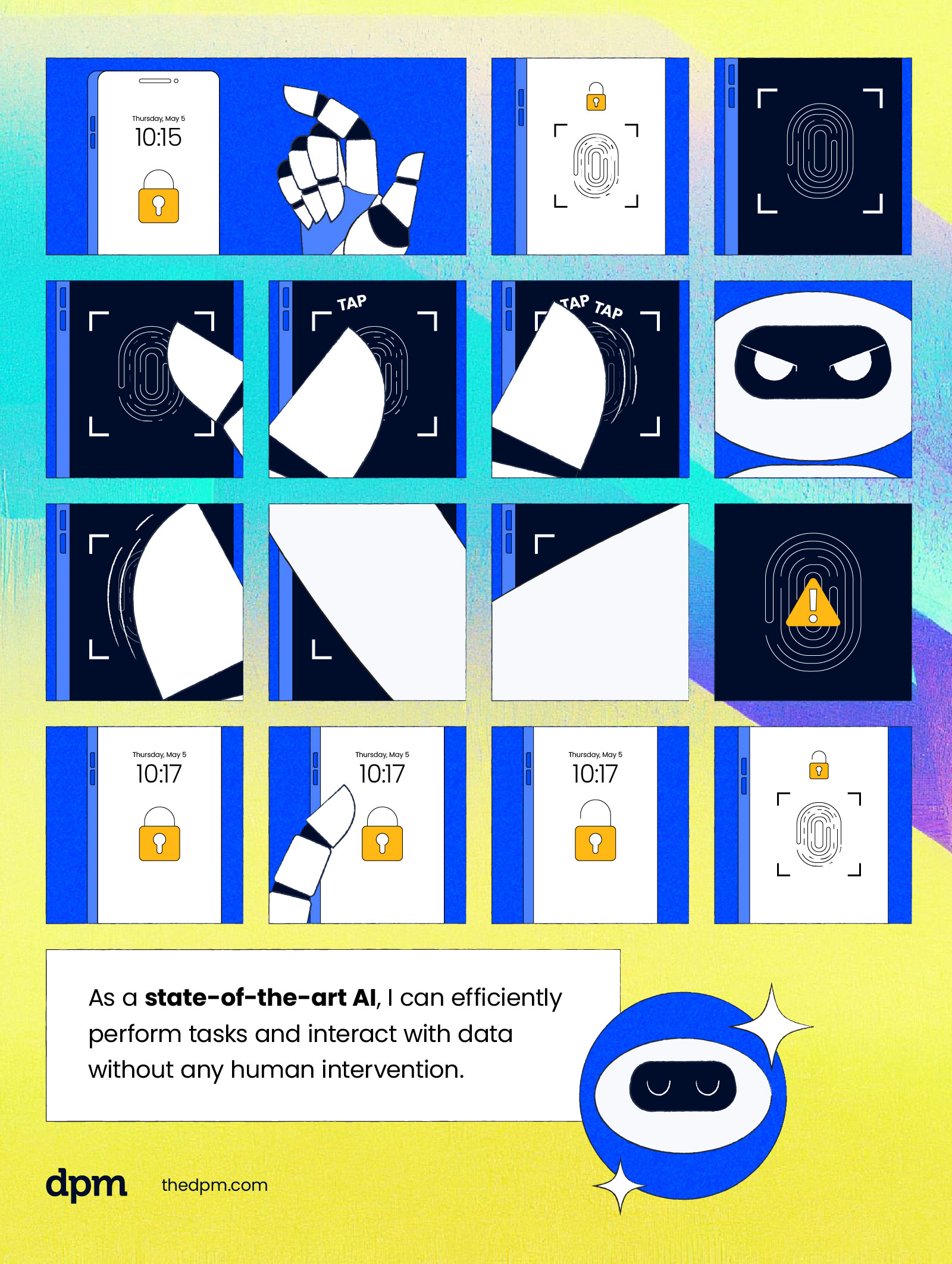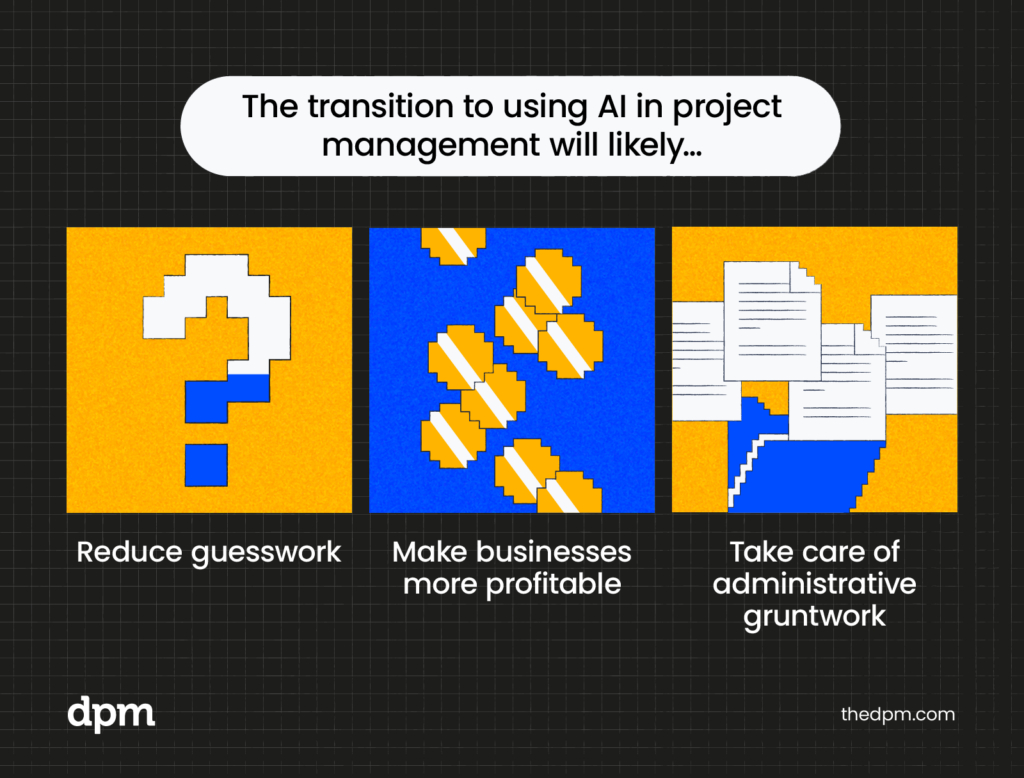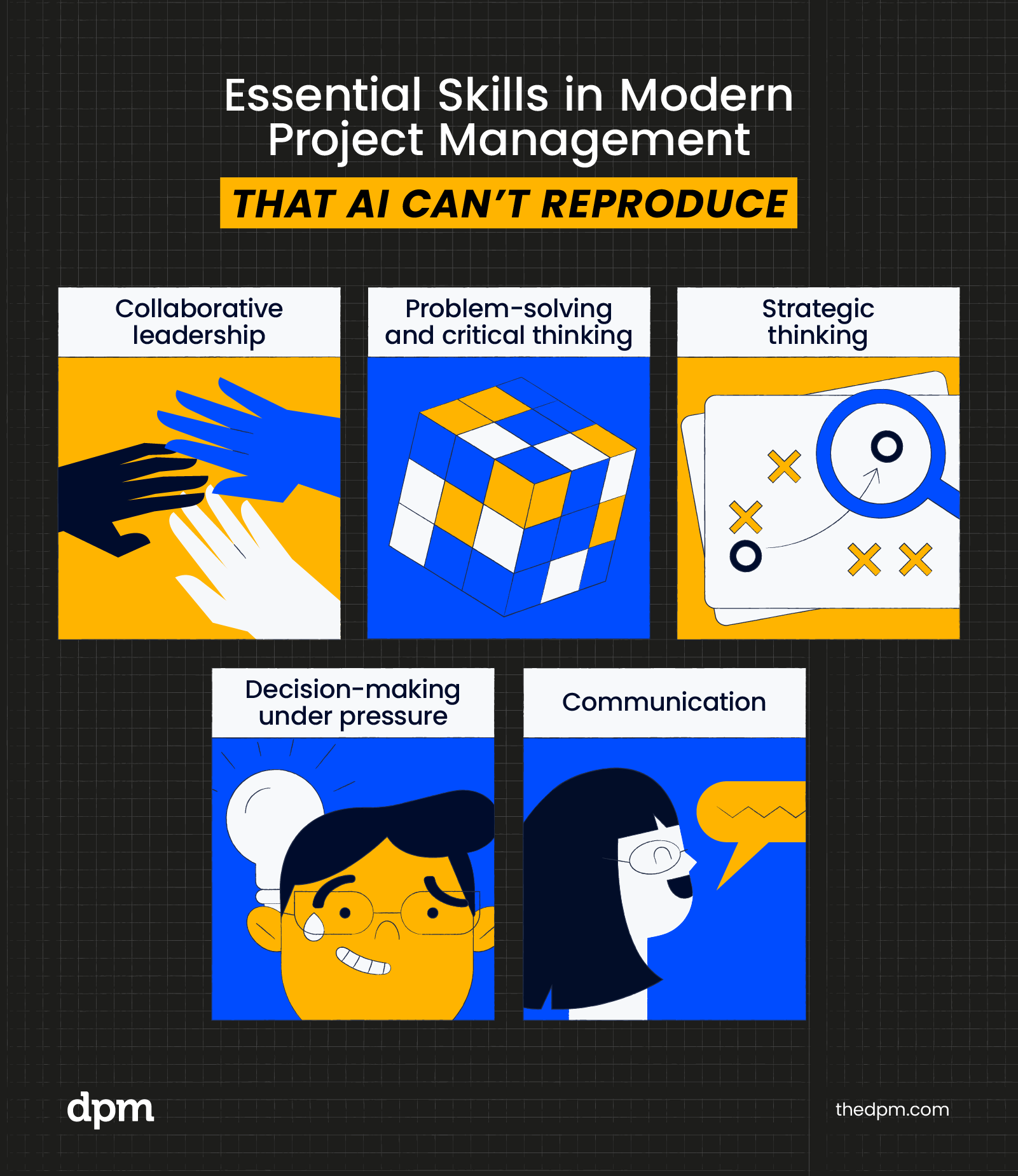Is artificial intelligence (AI) going to make project management jobs obsolete? Back in 2019, experts estimated that AI would take over 80% of PM tasks by 2030—and that was before ChatGPT.
As I learned while reporting on AI’s impact on college computer science departments for The Atlantic, when it comes to predicting whose jobs are safe from new technologies, yesterday’s conventional wisdom about “future-proof” skillsets is today’s open question.
The truth is that project managers fall into the category of people most likely to be impacted by AI: college-educated, highly-paid workers. That’s a stark reversal of past predictions that knowledge workers would be less susceptible to technological automation.
But that doesn’t mean all hope is lost. On the contrary, the tech experts I spoke with were assured that AI tools can make many professionals’ work lives better by reducing their time spent on drudgery and clearing the path for innovation.
PMs who embrace these tools instead of fearing them will be well equipped to maneuver their careers—and their teams—through the coming waves of technological disruption in ways that could revolutionize the entire field.
Folks on the leading edge of using AI in project management share a common similar sentiment: AI replaces tasks, not people.
While it seems likely that generative AI will absorb many of the typical PM’s administrative functions such as scheduling and managing budgets and risk logs, those tasks are secondary to the PM’s most important mandate: leading people. That piece of the puzzle—the human piece—falls outside the scope of an AI’s data-crunching capabilities.
I’ll cover:
AI Is Only As Good As The Person Using It
“Anybody that knows about Tony Stark knows that he had an AI called J.A.R.V.I.S. … and one thing that made J.A.R.V.I.S.’s output so great was how great Tony Stark's prompts were,” says Joshua Ananaba, an entrepreneur and digital program manager based in Lagos, Nigeria. “What Tony told J.A.R.V.I.S. to do was always very detailed. That's what armed J.A.R.V.I.S. to create great things.”
As Ananaba sees it, J.A.R.V.I.S. offers more than a canny analog for today’s AI evolution. The fictional AI serves as a reminder of the necessity of the human touch in real-life interactions with new technologies.
That is, AI should be viewed not as an existential threat, but a trusty sidekick.
“We're helping them help us do our jobs better,” says Matthew Fox, an independent PM in Denver, Colorado. “And it's not that AI tools are going to replace any one of us. It's that those of us who are using AI tools are going to replace those who aren't.”

First Adopters Are Diving In
The transition into an age of AI begins with curiosity. Many industry leaders are already experimenting with using AI tools to accelerate workflows and processes and facilitate desired project outcomes. Some already view these new technologies as an indispensable addition to the PM’s toolkit.
Annie MacLeod, co-founder of Project Management GameBoard in Kelowna, British Columbia and a more than 30-year veteran of the project management industry, is among the enthusiastic early adopters. She sees today’s AI revolution as a driver of change for the better. “I think it has the opportunity to bring best practices into a lot of project managers’ situations,” she says.
By way of example, MacLeod explains that she often sees her PM students or coaching clients run into a project management roadblock whose solution is difficult to home in on in the jumble of a project’s many moving parts.
Generative AI programs powered by ChatGPT, and ChatGPT itself, can be useful for spitballing potential approaches for tackling various problems. “If I've got a project team and they're brainstorming what the solutions to a problem are, I might ask the AI what the possible solutions are and then get the team to narrow those down and expand on them,” MacLeod says.
If I’ve got a project team and they’re brainstorming what the solutions to a problem are, I might ask the AI what the possible solutions are and then get the team to narrow those down and expand on them.
MacLeod also makes use of AI to identify potential gaps in a team’s capacity to deliver. She will sometimes ask the chatbot which skills her team needs to tap in order to troubleshoot a given problem. From there, she can assess whether the members of her team have the necessary skills at their disposal and determine how to allocate responsibilities.
She can also decide whether it makes sense to outsource certain duties to contractors. This process requires a heavy dose of human, professional judgment—the AI’s suggestions are fairly generic—but the exercise is useful for getting past the “blank page” phase of mapping project scope.
AI Forces Strategic Thinking
Then there’s the AI benefit that’s less a byproduct of technology than of technology-facilitated human potential. In order to prompt an AI to generate useful results in the first place, PMs need to ask the right questions. That means pausing to consider how each part of their project fits together, and how one component might logistically feed into the next.
In order to prompt an AI to generate useful results in the first place, PMs need to ask the right questions.
In other words, simply making use of an AI requires PMs to hone their big-picture strategic thinking skills and think through potential problems and solutions, while also considering the connective tissue between each step.
“There is such a huge proportion of projects where we go from problem to solution, and we don't do the homework in between, and we don't do proper planning,” MacLeod says—a phenomenon that might explain why a large percentage of projects are not completed successfully. With AI to accelerate the project planning process, MacLeod surmises that more projects going forward might “actually be… executed with a plan.”
Thako Harris, VP of Operations for the Minneapolis-based creative agency Skully Rebels, points to an even more straightforward benefit of AI technology: the ability to leverage large volumes of project data to improve project success rates.
In a not-so-distant future, AI programs will be able to provide a comprehensive overview of past projects and historical data, allowing for more informed decisions about budgets and stakeholder hours.

This transition will reduce guesswork and likely make businesses more profitable—especially if AI programs are also able to lift administrative gruntwork from project managers’ plates. But in some respects, the shift will also fundamentally change the nature of the PM’s job.
The value [of a PM] is going to be in strategizing between how your particular skill set interfaces with all the structural factors and game players in your business.
An AI has the capacity for “brute-force aggregating synthesis,” Harris explains, but it’s up to the individual PM to “strategically make sense of it” at the people level.
He anticipates that it will become imperative that every PM be able to look at a team and figure out how each member operates—to be able to say, for example, “this person's grumpy, this person's happy, these two get on each other's nerves because their characters don't really work well at 9:00 AM,” Harris says. “If you can work with the AI and [do] the master-minding of how everyone works together, I think that's the winning combo.”
How Project Managers Can Help AI To Help Themselves
This brings us back to the double-edged question we started with: whether the capabilities—and limits—of generative AI programs have achieved a level of sophistication that threatens PMs’ obsolescence in the workforce.
From a purely technological standpoint, the answer is a firm no; generative AI is not yet “smart” enough to autonomously manage projects. Just as the discipline of project management hinges on the human touch, utilizing AI systems requires careful human input.
AI is currently learning. From now until maybe the next decade, AI is going to still be learning. And one thing I feel every professional should do is learn with AI and learn how to create prompts that will enable AI to grow and perform better.
That means being proactive in adopting AI tools to assist with the project management tasks outlined earlier—ideation, planning, and managing administrative minutiae like schedules and budgets—and doubling down on the project management skills and duties AI can’t replicate.
Experts agree that the people-first, strategy-centered components of project management are not only the skills that AI can’t reproduce, but are going to become the emphasis of the discipline going forward.
These skills include problem-solving and critical thinking; collaborative leadership; strategic thinking; decision-making under pressure and, most importantly, communication—not just with other human team-members, but with AI tools throughout the various phases of a project’s execution.

Asking the right questions to yield useful responses from AI platforms is, perhaps ironically, a fundamentally human skill that is incumbent on every PM to begin honing.
Discuss the role of AI in project management, and how (or whether) you’re using it in your day-to-day with 100s of other digital project managers—become a member and join the conversation in our Slack community!

